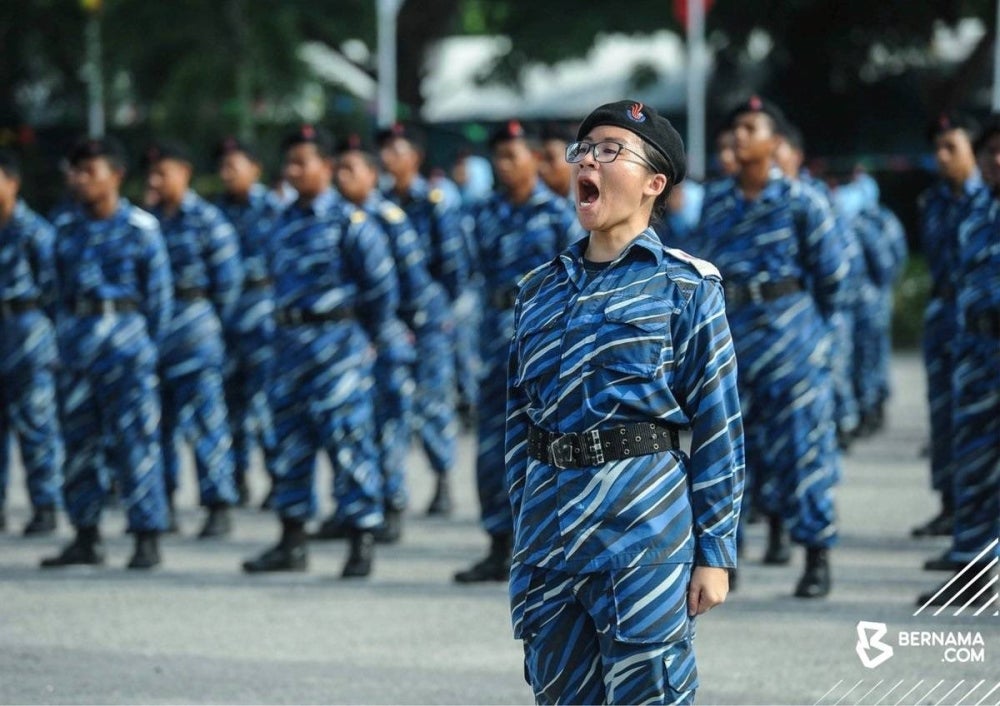PLKN 3.0 needs careful implementation, says analyst

SHAH ALAM - An academic has urged the government to carefully consider the implementation of the proposed National Service Training Programme (PLKN) 3.0.
According to Universiti Tunku Abdul Rahman's political science and senior lecturer, Afi Roshezry Abu Bakar, the programme should be designed to foster national unity, character development, and community service, and must be well-structured to achieve its objectives.
"PLKN 3.0 activities should instill patriotism, motivation, and a sense of civic responsibility among participants.
"It should also focus on enhancing physical fitness, agility, strength, and discipline," he told Sinar Daily when contacted.
Afi drew comparisons with national service programmes in Japan, Singapore, and South Korea, highlighting their established systems and proven effectiveness.
"Malaysia, on the other hand, is still seeking to optimise its national service programmes after two previous attempts," he noted.
Afi cautioned against repeating past mistakes, such as poorly maintained facilities, procurement-related corruption, and insufficient training duration.
"The proposed 45-day period for PLKN 3.0 is too short.
"My experience with Biro Tata Negara programmes suggests that a longer duration is necessary to achieve the desired outcomes," he said.
He also expressed concern about the potential for mishandling of funds.
"What's the point of conducting a full-fledged national service programme if corruption exists behind the scenes?" Afi questioned.
Prime Minister Datuk Seri Anwar Ibrahim has consistently asserted that the increased fight against corruption is motivated by the actions of "wealthy individuals" who have allegedly embezzled billions of ringgit from the country.
Anwar further asserted that corruption is the root cause behind the continuous rise in prices of goods and services, as well as the delayed delivery of projects intended for the people.
In a related matter, Afi also suggested that PLKN 3.0 could serve as an excellent platform for those experiencing a midlife crisis to redefine their character and mental well-being.
"I find the idea intriguing, and I myself am interested in participating.
"The programme could provide a perfect platform for individuals in their midlife to make meaningful contributions to the country.
"It would serve a valuable purpose for this age group," he said.
What we know so far
When the PLKN was introduced in 2004 as a compulsory three-month programme, it involved a random selection of youths who had turned 18. It was halted in 2015 before being reintroduced the following year, with participation made optional by 2019. The programme, however, was scrapped in August 2018. Last month, the Defence Ministry announced that a revised PLKN would be introduced.
Oct 9
- The revival of the programme called PLKN 3.0, which targets youths who have completed their Sijil Pelajaran Malaysia (SPM) examinations, was announced.
- The first phase will involve participation at the school level, while the second phase will take place after the SPM examinations.
- Phase 1 will involve Form Four students and will be geared towards uniformed co-curricular activities, such as those related to the police, firefighters and scouts. Under Phase 2, participants will undergo 45 days of training, 90 per cent of which will involve basic military training while the remainder nation-building.
Oct 10
- It was proposed that financial literacy modules be included in the PLKN 3.0 as early preparation for the younger generation to face future challenges, including those related to online shopping, credit card offers and cashless transactions.
Oct 15
- The Defence Ministry is in the midst of identifying the number of army veterans needed for the programme so as to provide them with job opportunities.
Oct 31
- Although the new PLKN will be targeted at youths aged between 16 and 35, SPM examination candidates will not be selected.
- Thirteen Territorial Army camps nationwide, including the Police Training Centre (Pulapol) in KL, will be used for Phase 2 of the training.
- The PLKN 3.0 will cost RM100mil a year compared with RM500mil for the former PLKN schemes.
Nov 4
- Trainees would be selected based on their year of birth. For example, if the PLKN is to be implemented in 2024, only youths born in 2007 will be called up.
- If the selected trainees are unable to participate in the national service training for valid reasons, they can apply for a postponement.
- The maximum age limit to become a trainee is 35.
Nov 23
- PLKN 3.0 may only kick-off in 2025 as there was no allocation for it in Budget 2024.












